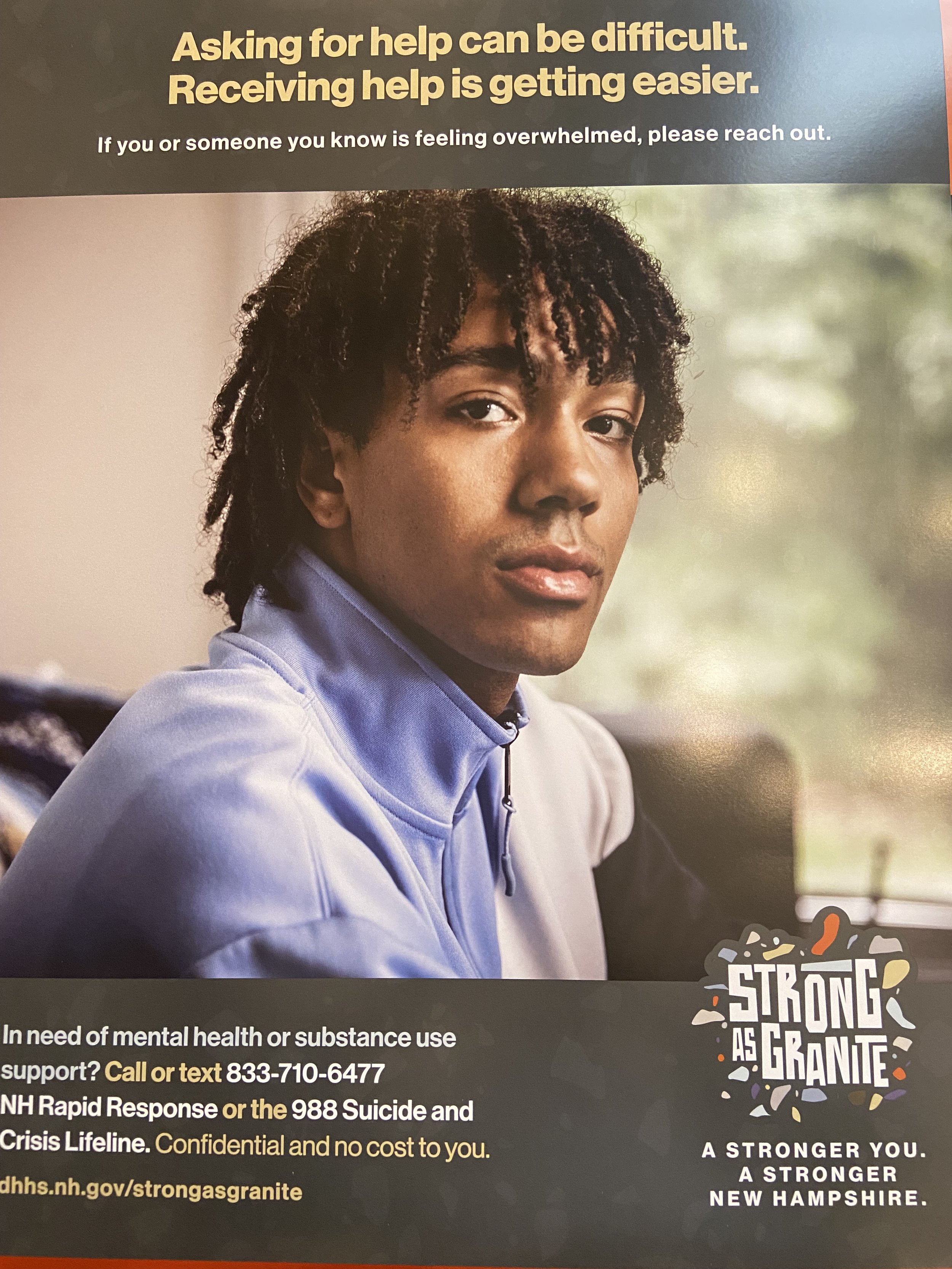“Strong As Granite” campaign to raise awareness about the behavioral health services in NH
September is Suicide Prevention Awareness Month … so it is the perfect time for the NH Department of Health and Human Services to roll out their “Strong As Granite” media campaign, intended to raise awareness about the behavioral health services offered across the state and to reduce the stigma around seeking help. Anyone with an issue can call or text Rapid Response at 833-710-6477.
According to Jenny O’Higgins, a senior policy analyst in the NH DHHS behavioral health division, the “Strong as Granite” campaign hopes to direct residents who are struggling with mental health, substance use disorder, and suicidality to services like the state’s rapid response phone number (833-710-6477), the 211 NH number, the Doorway referral system to help people access treatment and the national 988 number. The campaign has a new website.
“The campaign will involve the launch of a website, social media ads, radio and television ads and targeted billboard ads throughout the state,” says O’Higgins. “We want to make sure people know how to access care.”
For instance, a Manchester billboard for 211 that focuses on substance use awareness will target women between 30 and 40. In May 2023, the city had 17 overdose deaths, the second highest of all cities in the state. The median age is 36. Most opioid use happens in people between 30 and 40, according to department data.
A billboard in Rochester is designed to raise awareness of substance use and targets a demographic of women between 18 and 25. According to the department, Rochester is the third highest city for overdose deaths and Narcan use.
A third billboard in Suncook will address mental health crises in men aged 40 to 55, based on the department’s data that finds middle aged men are at an increased risk of suicide.
Using Mobile Crisis Teams In A “Crisis Now” Model
When people call the rapid response number, operators can deploy mobile crisis teams through the state’s 10 mental health centers. This is part of what’s called the “crisis now model”. The model has three pillars: someone to call, someone to respond, and somewhere to go. According to O’Higgins, NH has future plans to pilot crisis stabilization centers.
The NH Suicide Prevention Council is dedicated to promoting awareness that suicide is a preventative public health problem. For more information, visit Suicide Prevention Council | New Hampshire Department of Health and Human Services (nh.gov).


